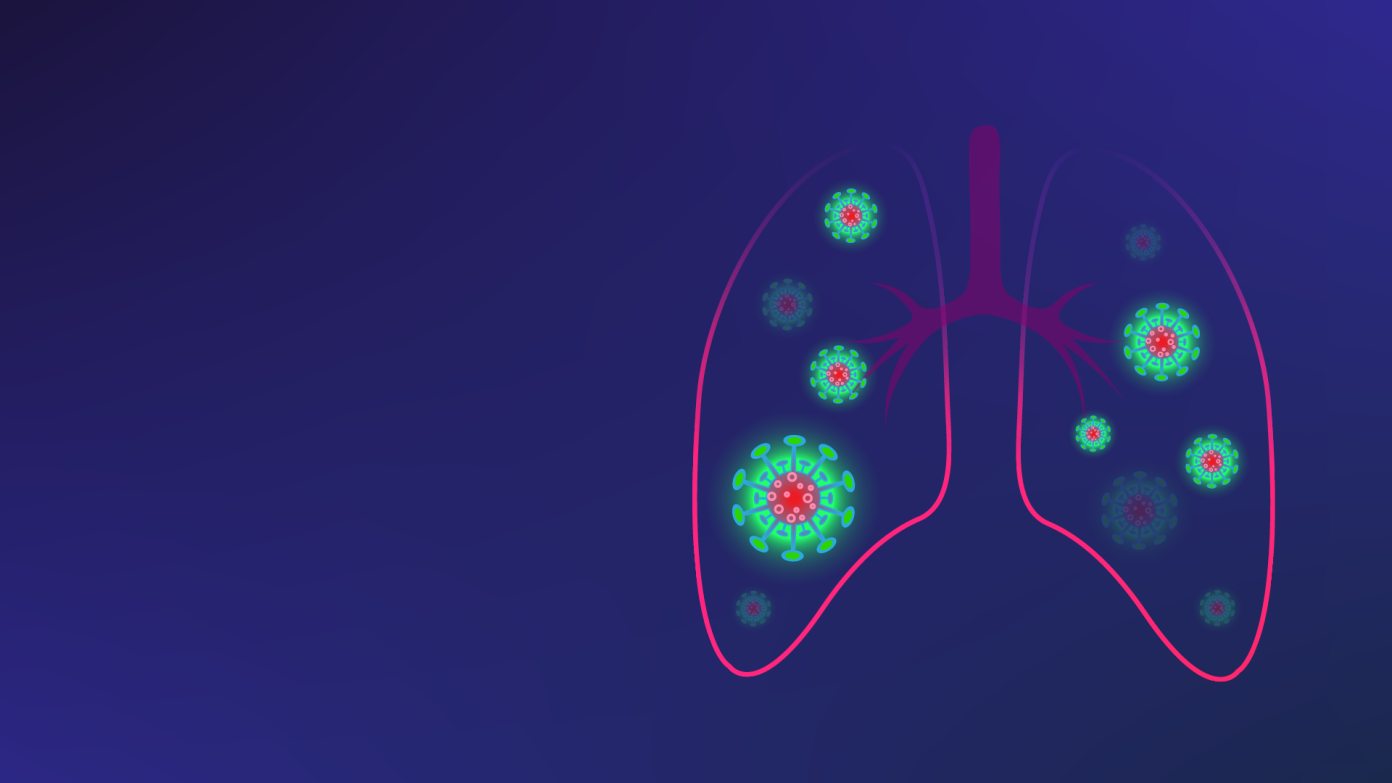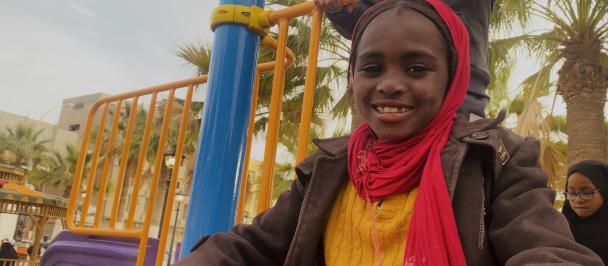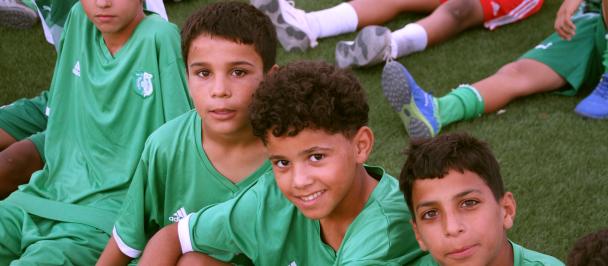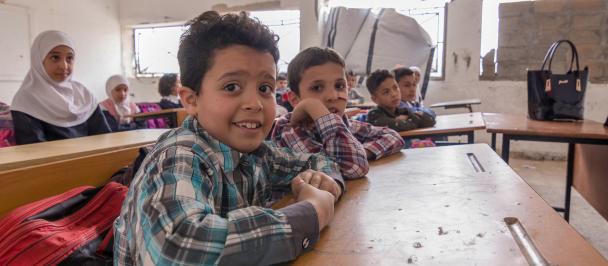Humanity needs leadership and solidarity to defeat COVID-19
COVID-19 Pandemic
January 16, 2021

The coronavirus COVID-19 pandemic is the defining global health crisis of our time and the greatest challenge we have faced since World War Two. Since its emergence in Asia late last year, the virus has spread to every continent except Antarctica. Cases are rising daily in Africa the Americas, and Europe.
Countries are racing to slow the spread of the disease by testing and treating patients, carrying out contact tracing, limiting travel, quarantining citizens, and cancelling large gatherings such as sporting events, concerts, and schools.
The pandemic is moving like a wave—one that may yet crash on those least able to cope.
But COVID-19 is much more than a health crisis. By stressing every one of the countries it touches, it has the potential to create devastating social, economic and political crises that will leave deep scars.
We are in uncharted territory. Many of our communities are unrecognizable from even a week ago. Dozens of the world’s greatest cities are deserted as people stay indoors, either by choice or by government order. Across the world, shops, theatres, restaurants and bars are closing.
Every day, people are losing jobs and income, with no way of knowing when normality will return. Small island nations, heavily dependent on tourism, have empty hotels and deserted beaches. The International Labour Organization estimates that 25 million jobs could be lost.
UNDP response
Every country needs to act immediately to prepare, respond, and recover. The UN system will support countries through each stage, with a focus on the most vulnerable.
Drawing on our experience with other outbreaks such as Ebola, HIV, SARS, TB and malaria, as well as our long history of working with the private and public sector, UNDP will help countries to urgently and effectively respond to COVID-19 as part of its mission to eradicate poverty, reduce inequalities and build resilience to crises and shocks.
“We are already hard at work, together with our UN family and other partners, on three immediate priorities: supporting the health response including the procurement and supply of essential health products, under WHO’s leadership, strengthening crisis management and response, and addressing critical social and economic impacts.”UNDP Administrator, Achim Steiner
Tackle COVID-19 in Libya
In Libya, the need to respond to the global health crisis only adds to the internal security, political and economic crises. People in Libya live in permanent uncertainty and fear, as open conflict continues. While continuing to serve the people of Libya as our main priority, UNDP remains completely dedicated to ensuring the safe, efficient, and effective delivery of our projects.
Over the years, we have realigned our support to meet emerging priorities in the country. UNDP, as well as other UN agencies, have been supporting public institutions, local governments, civil society and communities in Libya to achieve stabilization, resilience and recovery, and contributing to shaping the conditions for peace and social cohesion in the west, east and south of the country. Nowadays, UNDP's main priority in Libya is to continue serving people by assisting the National and Local Governments and institutions to provide access to health services and to urgently and effectively respond to COVID-19, while reducing inequalities and tackle the virus from harming the most vulnerable.
The rehabilitation work undertaken in hospitals and medical centers across the country by our Stabilization, Resilience and Recovery projects are helping municipalities cope with the healthcare demands that the coronavirus may impose. Municipalities across the country are using the equipment delivered by UNDP to disinfect the streets in an intend to stop the spread of the virus.
In the East
In Ajdabiya, UNDP repaired the CT scanner at the General Hospital that will help to identify impact on affected patients for their treatment.
In Benghazi, Alkwefia Hospital, renovated by UNDP, is the only medical institution that is carrying out tests for COVID-19 in the East. The rescue vehicle delivered by UNDP to the Civil Defense Department is being used to disinfect the streets. The eight ambulances provided by UNDP to Benghazi are designated to attend emergencies including support to affected people by the virus.
In Kufra, Atia Kaseh Hospital rehabilitated by UNDP is the only health facility in the area testing for coronavirus, and the only one equipped with intensive care units to receive patients affected by the COVID-19. Al Mukhtar Clinic and Ghardafai al Shura, renovated both by UNDP, are the first points for medical checking to patients with coronavirus symptoms before transferring to the main hospital.
In the South
In Ghat, Al Birket Health Center rehabilitated by UNDP is the only center providing COVID-19 test in the whole area. The Municipality is using the pesticide sprayer vehicles provided by UNDP to disinfect public places and streets. The generators are backing up in case of power outage and ensuring that clean water is accessible all the time, washing hands frequently being one of the barrier measures to fight against the pandemic.
In Murzuq, UNDP delivered two ambulances, two obstetrics tables and renovated Murzuq Hospital which now is the main hospital in charge of testing for coronavirus. The renovation included the ICU department that will be the main room to receive COVID-19 highly affected patients.
In Ubari, General Hospital rehabilitated by UNDP accommodates suspected cases of coronavirus infection under quarantine. The ambulances provided by UNDP are transferring suspected cases to the hospital and generators are providing back up to the health sector when there is power outage.
In the West
In Bani Walid, the municipality and health personnel are using the ambulances provided by UNDP to undertake an awareness and disinfection campaign to protect the community. The municipality is also using the suction truck and the pesticide sprayer vehicles delivered by UNDP to disinfect public places, shops and streets as a response to the coronavirus threat. Ambulances are on standby to transfer suspected cases if need be.
In Sabratha, UNDP rehabilitated the Teaching Hospital that now is the main hospital to conduct test for the coronavirus.
In Sirt, Garbage truck delivered by UNDP are helping the municipality to maintain the city clean, thus trying to avoid the spread of the virus. Ambulances delivered by UNDP are transferring suspected cases to hospital in Benghazi, and the Polyclinic, which is among the health institutions renovated by UNDP, is now the main medical facility to receive patients in Sirt. Ibn Sina Hospital rehabilitated by UNDP, have been designated to receive confirmed cases of COVID-19 exclusively.
In Tripoli, ambulances provided to Hay Andalus municipality are ready to transport any patient with coronavirus symptoms, and Tripoli Central Hospital renovated by UNDP is the main institution responsible for testing COVID-19 cases and providing the may needed health care in Greater Tripoli. The suction trucks provided by UNDP are helping to clean and sanitize public places.
Furthermore, we are raising awareness on the exposure and precautions against the COVID-19 through a network of Communication officers working in municipalities across the country. We share content and advise on relevant information to share on their Facebook pages to raise awareness among their communities.
We are supporting Libya through each stage, with a focus on the most vulnerable groups, and an eye to the future. We are also working to mitigate the potentially devastating impact that the pandemic may have on Libya’s economy. In the longer term, UNDP is looking at innovative ways to support Libya to better prevent and manage such crises and ensure that the country makes full use of the lessons learned from this crisis.
UNDP is helping Libya in three ways:
The first is supporting national and local institutions to strengthen their health systems to respond to COVID-19. We will provide key strategic health and medical equipment; upgrade capacities for local production of protection gear; help the Ministry of Health to build isolation rooms in hospitals and clinics, as well as provide technical assistance to design medical oxygen plants and procure urgent inputs like hospital beds, oxygen cylinders and corona virus test kits.
We are supporting Ministry of Justice to prevent and control COVID-19 in prisons.
We are also working to set up a system of network to facilitate communication and outreach between the hospitals and the hard-to-reach locations where there is poor access to services.
The second is setting up a whole-of society response bringing all local and national authorities, civil society and private sector around the table. In Libya, this will include strengthening institutions for governance and crisis management at national and local level; and raising awareness on the exposure and precautions against the virus through a network of communication officers of municipalities in the South, West, and East of the country.
UNDP, together with UNSMIL, are adjusting their strategy, so that despite the threat of the virus, Libya can move forward with the Berlin process and pave the way for a comprehensive political solution.
From Libya, we are hosting online reconciliation forums, and advocating and supporting the call for an immediate global ceasefire in all corners of the world by the UN Secretary-General, Antonio Guterres, to fight the common enemy, COVID-19. UNDP is supporting the campaign #PeaceNowStopCorona launched by a group of Libyan peace mediators to demand peace in the country to tackle the pandemic.
The UN system is launching a coordinated response in Libya to strengthening crisis management and response, as well as to addressing critical social and economic impacts.
UNDP’s response to COVID-19 in Libya is part of a wider and coordinated UN response to supporting the WHO’s Strategic Preparedness Response Plan (SPRP). The UN strategy supports the National Centre for Disease Control and compliments the Libyans’ National Response Plan to actively engage and respond to the prevention and response of the virus. WHO, the health authorities and health partners prioritized six technical areas for urgent support, including enhancing surveillance, strengthening rapid response teams; supporting health control offices at points of entry; improving laboratory capacity; increasing health information and communication; and supporting the establishment of isolation wards in selected hospitals and quarantine areas at points of entry.
UNDP believes it is critical to work with WHO and other UN agencies, and will continue to deliver within the humanitarian-development nexus. Within the UN Response plan for Libya, UNDP will continue working through its Stabilization, Recovery, and Resilience programmes in all three regions of Libya to provide support to health infrastructure and health waste management.
The impact of COVID-19 on national economies, particularly vulnerable ones, such as Libya, is a key concern. That is why we will work across all sectors to mitigate its economic consequences. This is not just a public health crisis, it is a crisis that will touch every sector, with serious social and economic impact.
As UNDP in Libya, we will continue delivering our life-changing projects while supporting institutions in the country to set up a multisectoral whole-of-society approach to face the challenges beyond the health sector, to limit the spread of COVID-19 and to mitigate the potentially devastating impact it may have on Libya’s vulnerable populations and its economy.
The third is addressing the socio-economic and human rights impacts of COVID-19 and safeguarding progress towards achieving the SDGs, including addressing stigma and discrimination arising from its spread and supporting marginalized people and vulnerable populations. In Libya, we are assessing capacities and planning for long term inclusive development with especial focus on most vulnerable groups; implement special measures for those whose livelihoods are most affected; and conducting communication and advocacy campaigns engaging with civil society and community-based organizations at the local level to prevent discrimination.

 Locations
Locations

